It’s a Monday morning sometime in the mid-1970s and a teenaged Colin Goodwin is sat in the back of class dreaming about cars, motorcycles and engines. At the front, the teacher is scribbling French sentences on the blackboard. “Why learn French,” I would have said back then. “Am I ever going to live or work in France?”
My parents spent a lot of money on my education, but for the return they got from it interms of exam results, they would have been better off going to the local greyhound track and blowing the lot. The trouble was that I was interested only in grafting in the subjects that interested me, and that was only English. I got good O-level grades in both literature and language. These subjects make up 50% of my total O-level count.
The tragedy is that I should have been as interested in physics and would have been if someone at the school had had the wit to explain to me that physics played a crucial part in the creation, function and performance of my beloved machines. A visit to the Brabham or Tyrrell Formula 1 teams, which were no more than 10 miles from my school, could have changed my life.
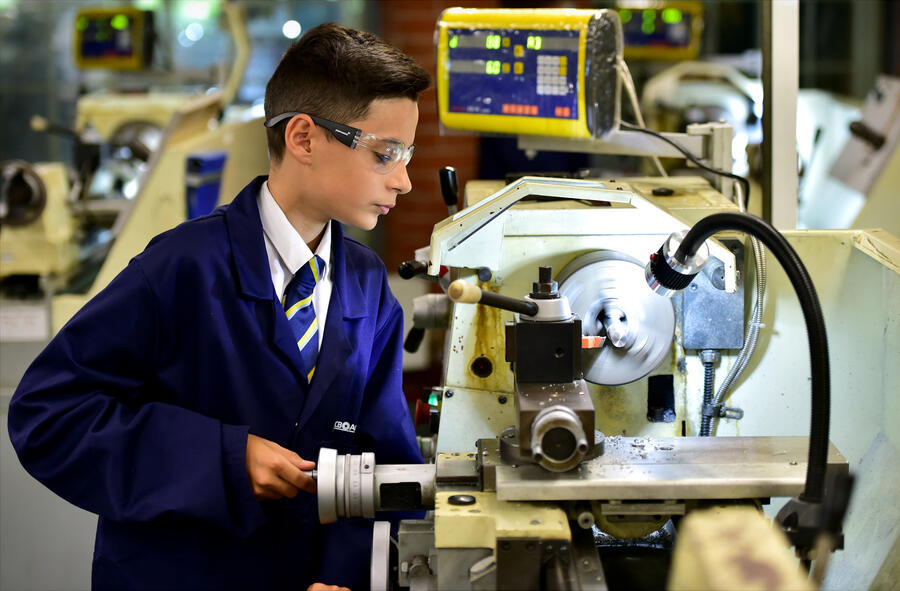
Forward 45 years and it’s the first lesson of the day on Monday for Year 10 students at the JCB Academy in Rocester, Staffordshire. Their noses aren’t in a Latin textbook, nor are they frantically copying French phrases into an exercise book. They’re instead turning a short bar of aluminium on a lathe. About a dozen pupils, boys and girls, each with their own machine. Their teacher is carefully observing and giving advice on tool positioning and setting up.
I had heard of the JCB Academy but had assumed that it was set up as a training establishment for the JCB factory itself in nearby Uttoxeter. I had also assumed that its students were either apprentices or post-graduates. Then a couple of weeks ago, I received an email from JCB’s press office saying that an ex-engineer at JCB called Bill Turnbull had recently passed away and donated to the Academy some of the proceeds from the sale of a Bugatti Type 57 that he had restored. From the press release, it was clear that my assumptions about the Academy were wrong.
First, the Academy takes in kids (they’re referred to as ‘learners’ by the staff) from Year 10 (ages 14 and 15). I’m sitting in front of the principal, Jenny McGuirk, who is a physics teacher by trade. “The Academy was established in 2010,” she explains, “and is focused on engineering and business. We have a totally modern approach to education at the Academy, with hours that are more like those in a business, rather than a school, and our curriculum is quite different. There’s no history or geography, for example, although those subjects will be touched upon if they’re relevant. What we do have are options that learners can take up. Modern languages, for example, or product design.”

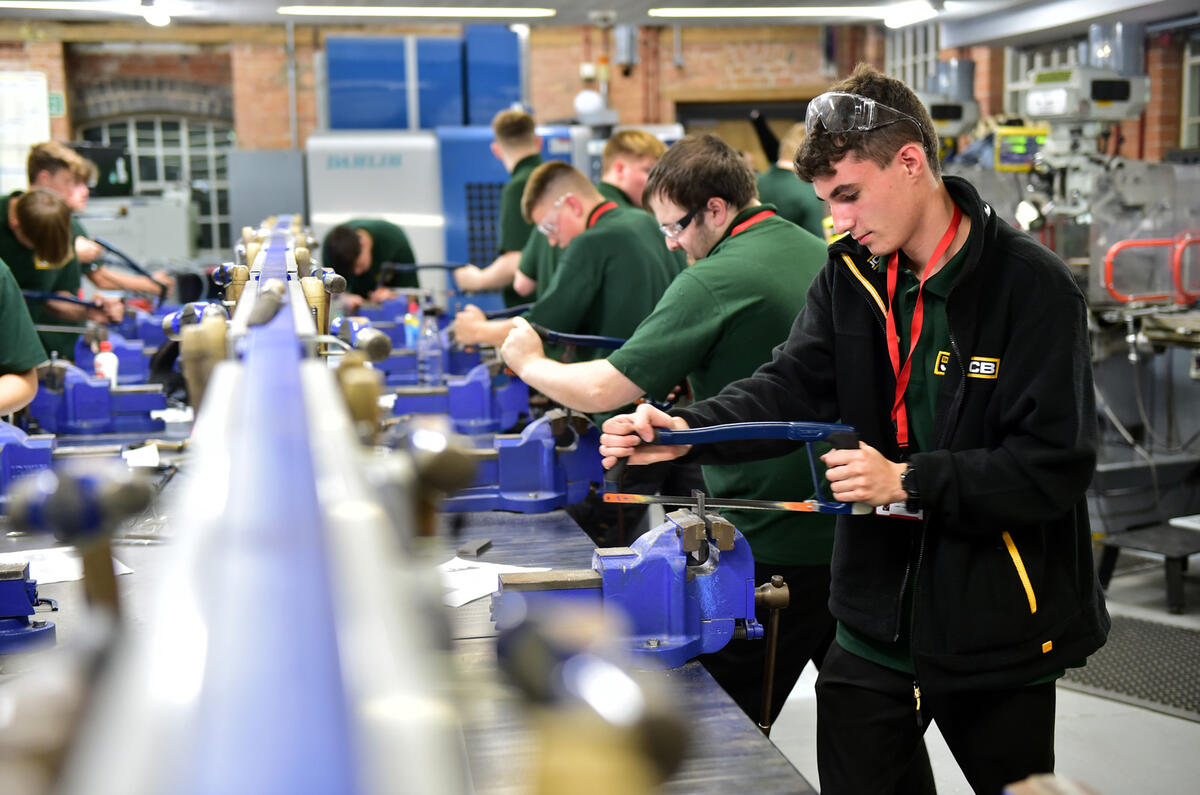
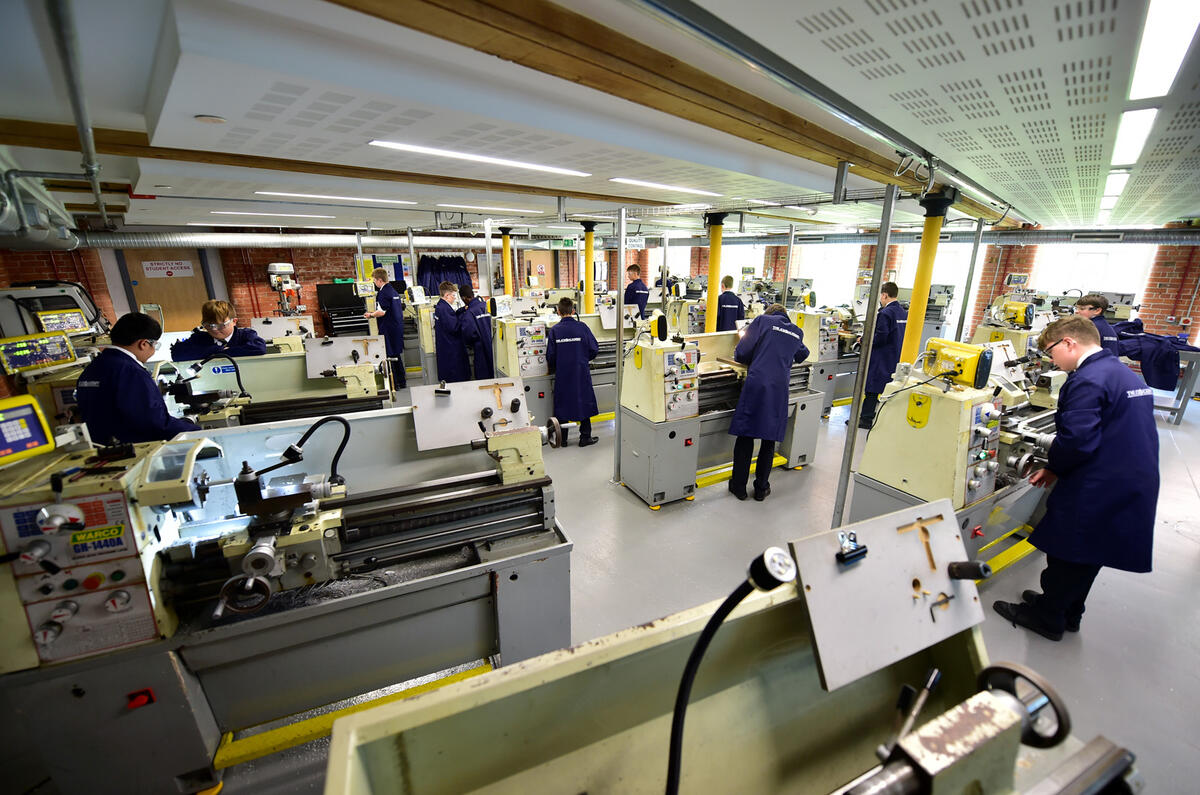
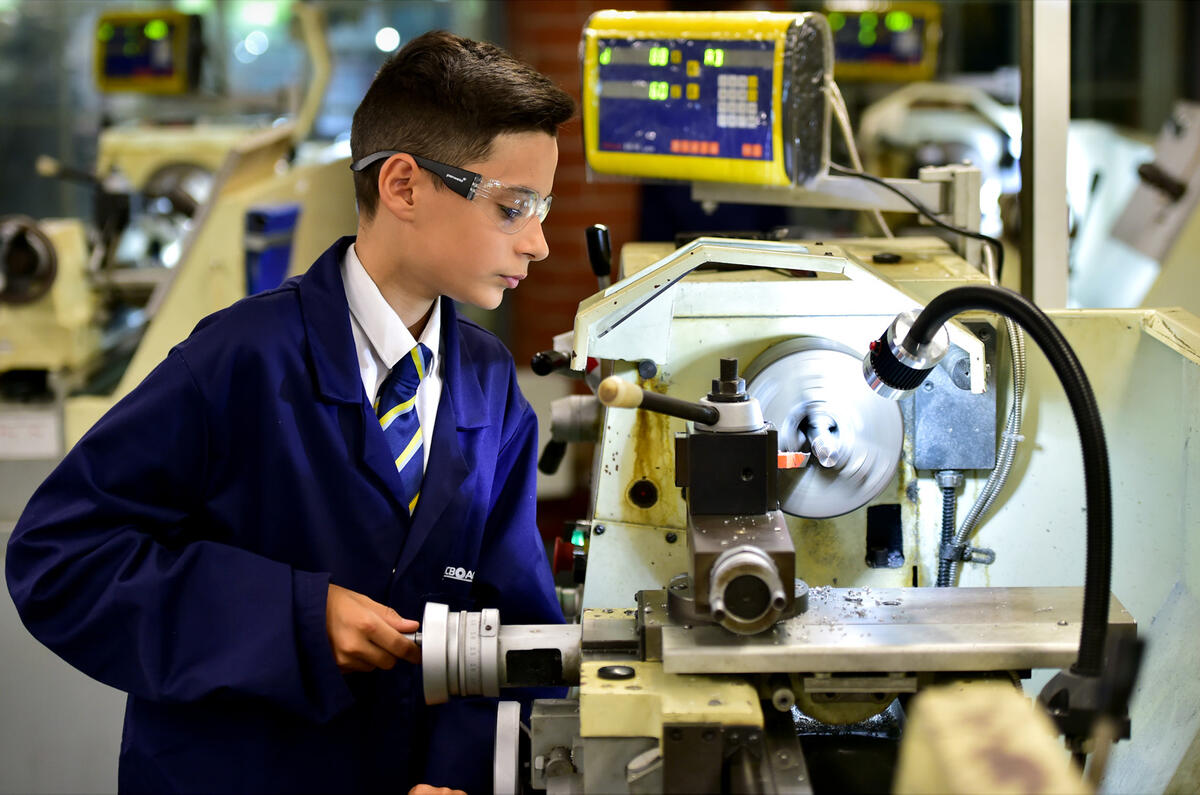
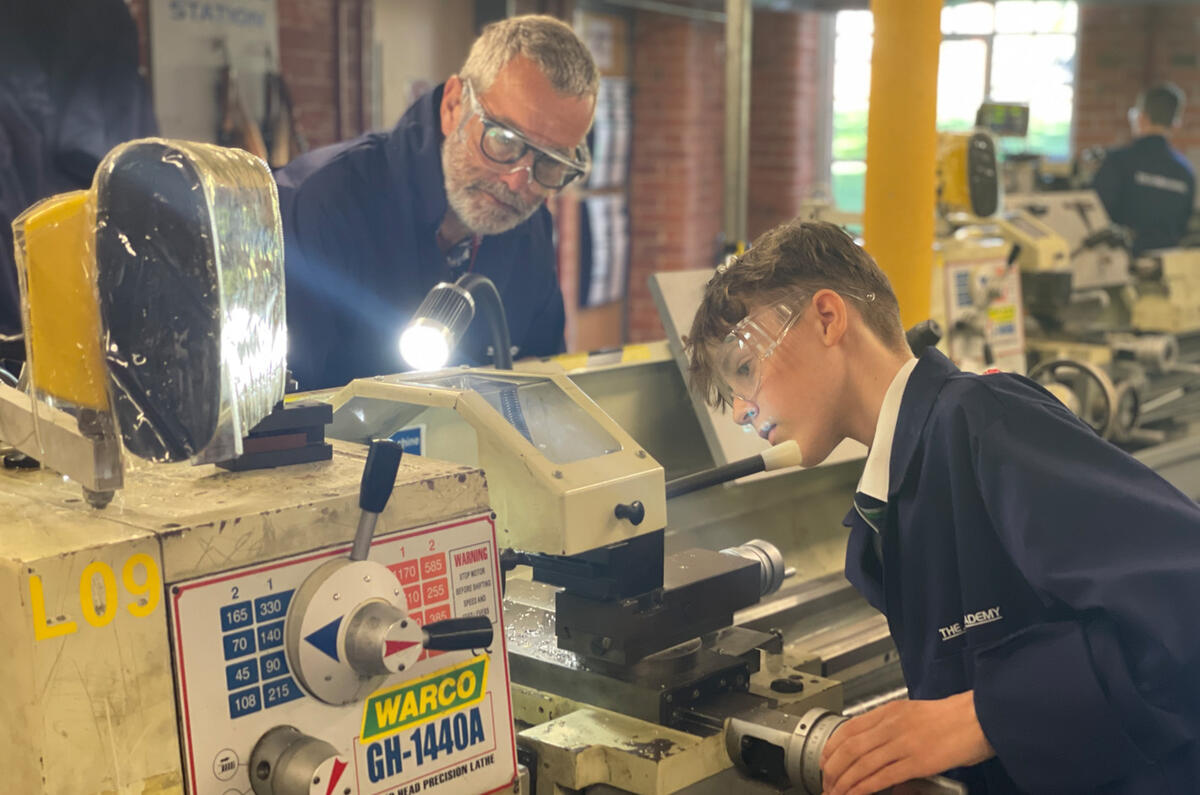
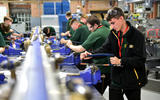
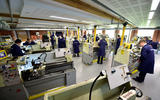
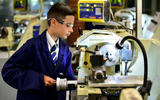
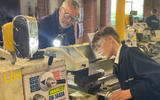

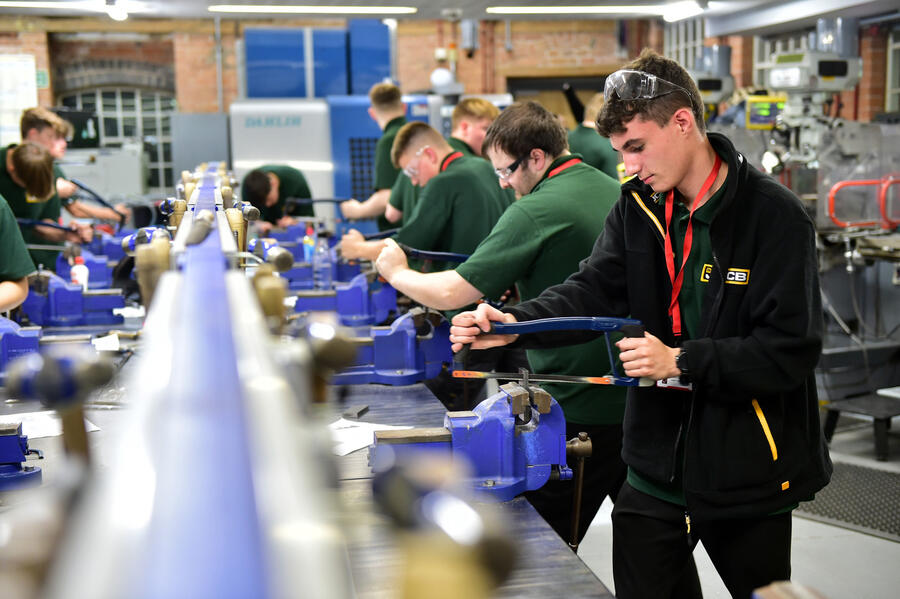
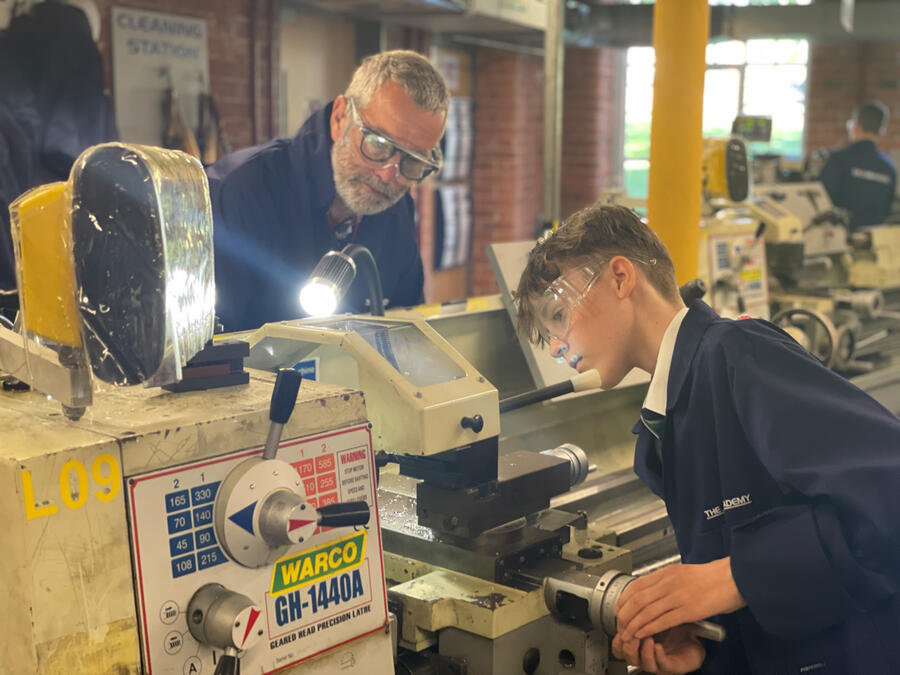


Join the debate
Add your comment
I wish I was aware of such opportunities back in the 70s, if they existed. I would have gone down that route rather than drifting aimlessly to university not knowing what I wanted to do afterwards.
Vocational studies is definitely something that has been overlooked because politicians like to hear of people studying at university rather than FE colleges. It's a disservice to many of our youth, and indeed to the colleges too. They should be filling the gap between unskilled jobs and those at university by teaching these skills. Skills to make and build things.
Sadly, there's been so much de-industralisation in areas where I live that I wouldn't even advise anybody to do such. I know engineering companies are screaming out for trained CNC operators, trying to train people up too who want to learn, but trying to find young people interested is extremely difficult. The gap between how few engineering companies that are left and how many new students you'd need to make a course viable to run is the problem.
There's always one or two remoaners willing to spoil a good news story offering hope, good on him I say
It's a great story, just like those mill owners building towns for their workers or pit owners...
There's definitely a shortage of CNC operators and before Brexit we were getting more and more of them in from the EU. Now of course they've gone home because people like Bamford told them to F' off.
Brexiters like him have done huge damage to the UK.
As for training new operators, the problems go back to the schools. We're telling kids that they'll go to university and do media studies or politics. Whereas we should be getting many of them the skills to become technicians able to operate CNC machines. Even those going to university are doing studies which we generally have no urgent need for. If you wanted to make a difference and encourage people in to engineering then reduce the fees to study essential subjects and increase it on the subjects we have too many unable to find jobs in those vocations!
We're telling kids that they'll go to university and do media studies or politics.
Fake news is becoming so bad on here. Who exactly is saying that and can you give us some examples?
I just can't work out your thinking. You want to invest in training yet at the same time allow a system which allows the employment of people who already poses those skills from other EU countries? Moreover people who're willing to work on a temporary basis for less money?
You're right, we encourage 50% of young adults to go to university but it's not them we're bothered about, it's the others, it's the 50% you haven't mentioned that worries me. The majority of them could look forward to a career in unskilled work because skills were being brought in thru an open door. Have you ever considered that's why Brexit was popular?
Hopefully more employers will think like JCB.
Talk to the academics in universities, especially those who have seen their engineering departments decimated over that time. Yet there's a huge influx of students in lighter subjects.
Funny too that over the last couple of months it has become clear that Britian benefited from EU workers coming to the UK so much they are desperate for them to return and pick our fruit and veg, then drive HGVs taking produce to the supermarkets. It seems Brexiters don't want to do those jobs they claimed were stolen from them!
Part of that 50% you quote being talked in to going to university really need to be talked in to doing other subjects, such as the CNC operators positions. That the colleges should be teaching as part of modern apprenticeships.
Taking away our youth's futures with Brexit isn't going to solve anything. People like Bamford are insulated from this, yet ironically love to go to their Chateaus in France (I believe the wine he produces at his Chateau is excellent), but not for our youth to enjoy the same freedoms of movement.